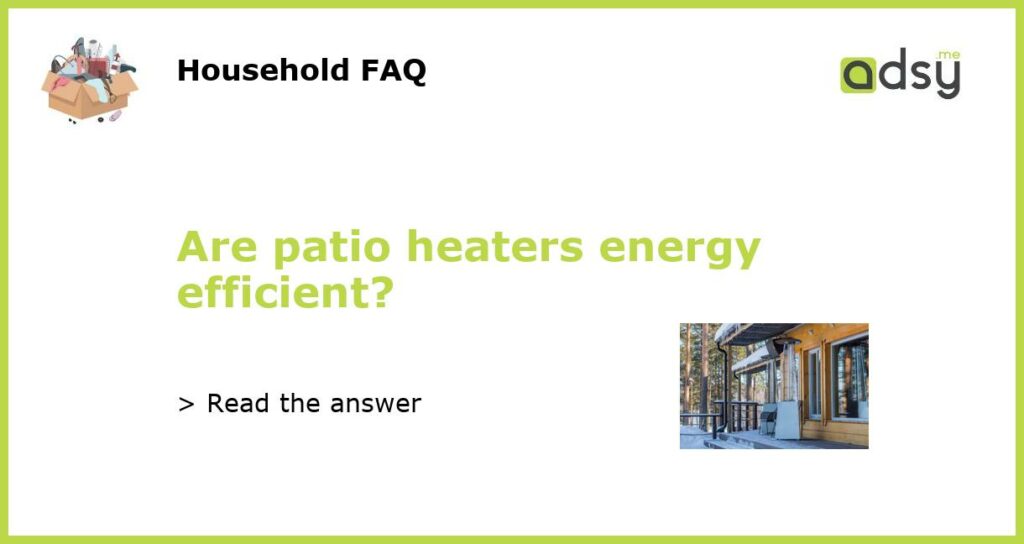How do patio heaters work?
Patio heaters are designed to provide warmth to outdoor spaces such as patios, decks, and gardens. They work by using various energy sources to produce heat, which is then distributed to the surrounding area. The most common types of patio heaters are gas-powered, electric, and propane heaters.
Gas-powered patio heaters use either natural gas or propane as fuel. These heaters have a burner at the top that heats up a metal dome or dish, which then radiates the heat to the surrounding area. Electric patio heaters, on the other hand, use electricity to generate heat. They have a heating element that gets hot when electricity flows through it, and a fan or reflector that helps distribute the heat. Propane patio heaters work similar to gas-powered ones, but they use propane cylinders as fuel instead.
Energy efficiency of gas-powered patio heaters
Gas-powered patio heaters are known to be less energy efficient compared to other types. This is because a significant amount of heat is lost through radiation and convection. The metal dome or dish at the top of the heater radiates heat in all directions, including upwards. As a result, much of the heat produced is wasted.
In addition, gas-powered patio heaters require a constant supply of fuel, whether it is natural gas or propane. This means that they consume energy continuously, even when not in use. If left running for extended periods, the energy consumption can add up significantly. Gas-powered patio heaters also produce carbon emissions, contributing to environmental pollution.
Energy efficiency of electric patio heaters
Electric patio heaters are generally more energy efficient compared to gas-powered ones. They convert a higher percentage of electricity into heat, with minimal energy wastage. Unlike gas-powered patio heaters, electric ones do not produce carbon emissions during operation, making them a more environmentally friendly option.
However, the energy efficiency of electric patio heaters can vary depending on the model and settings. Some electric heaters may have higher energy consumption if they are designed to provide more heat. It is important to consider the wattage of the electric heater and adjust it according to your heating needs to ensure optimal energy efficiency.
Energy efficiency of propane patio heaters
Propane patio heaters are similar to gas-powered ones in terms of energy efficiency. Like gas-powered heaters, they release a significant amount of heat through radiation and convection, resulting in energy wastage. Propane heaters also require a constant supply of fuel to operate, which means they consume energy continuously.
It is worth noting that propane patio heaters produce carbon emissions during combustion, contributing to air pollution. This is an important factor to consider when choosing an energy-efficient option for your outdoor space.
Considerations for energy efficiency
When evaluating the energy efficiency of patio heaters, it is essential to also consider factors such as insulation, usage patterns, and outdoor temperature. Proper insulation of the outdoor space can help retain heat, reducing reliance on patio heaters. Additionally, using patio heaters only when necessary and adjusting them to the appropriate temperature can help minimize energy consumption.
In conclusion, electric patio heaters tend to be more energy efficient and environmentally friendly compared to gas-powered and propane heaters. However, individual models and settings can influence the energy efficiency of electric heaters. It is advisable to research and select a patio heater based on your specific heating needs, while also considering the environmental impact and overall energy efficiency.






